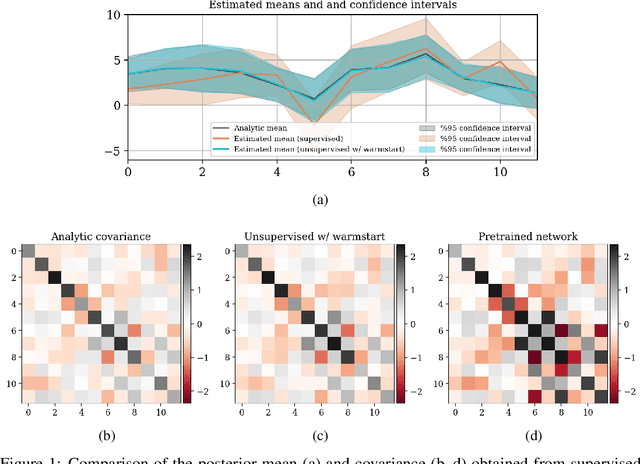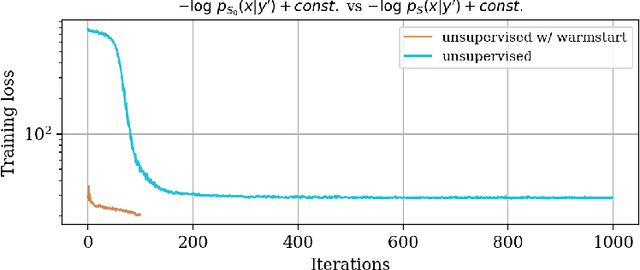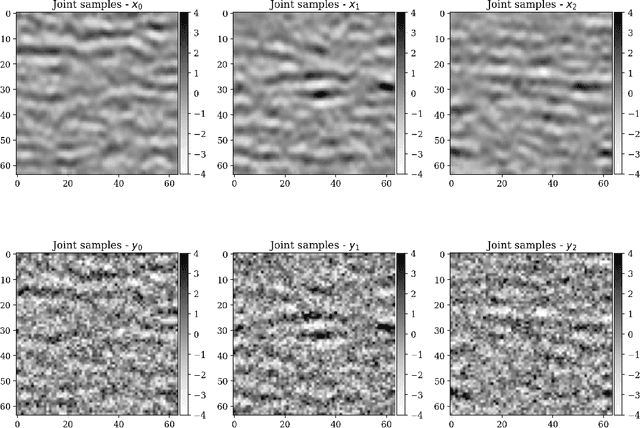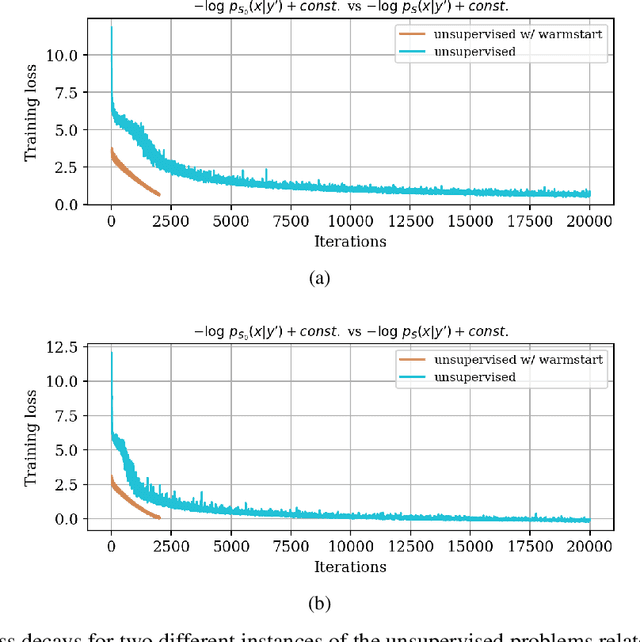Faster Uncertainty Quantification for Inverse Problems with Conditional Normalizing Flows
Paper and Code
Jul 15, 2020



In inverse problems, we often have access to data consisting of paired samples $(x,y)\sim p_{X,Y}(x,y)$ where $y$ are partial observations of a physical system, and $x$ represents the unknowns of the problem. Under these circumstances, we can employ supervised training to learn a solution $x$ and its uncertainty from the observations $y$. We refer to this problem as the "supervised" case. However, the data $y\sim p_{Y}(y)$ collected at one point could be distributed differently than observations $y'\sim p_{Y}'(y')$, relevant for a current set of problems. In the context of Bayesian inference, we propose a two-step scheme, which makes use of normalizing flows and joint data to train a conditional generator $q_{\theta}(x|y)$ to approximate the target posterior density $p_{X|Y}(x|y)$. Additionally, this preliminary phase provides a density function $q_{\theta}(x|y)$, which can be recast as a prior for the "unsupervised" problem, e.g.~when only the observations $y'\sim p_{Y}'(y')$, a likelihood model $y'|x$, and a prior on $x'$ are known. We then train another invertible generator with output density $q'_{\phi}(x|y')$ specifically for $y'$, allowing us to sample from the posterior $p_{X|Y}'(x|y')$. We present some synthetic results that demonstrate considerable training speedup when reusing the pretrained network $q_{\theta}(x|y')$ as a warm start or preconditioning for approximating $p_{X|Y}'(x|y')$, instead of learning from scratch. This training modality can be interpreted as an instance of transfer learning. This result is particularly relevant for large-scale inverse problems that employ expensive numerical simulations.
 Add to Chrome
Add to Chrome Add to Firefox
Add to Firefox Add to Edge
Add to Edge